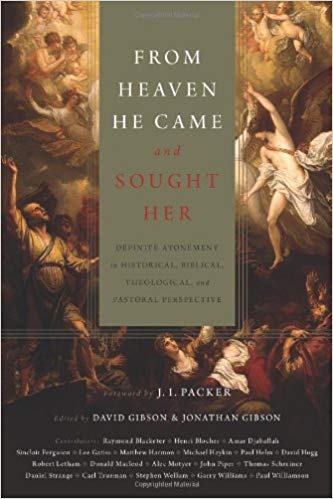A Suggested Order for Family Worship
For use with the Trinity Psalter Hymnal and URCNA Forms and Prayers book (with links to song tunes) (also visit threeforms.org and formsandprayers.com)
Call to Worship: Psalm 100 or Psalm 136:1 (may be said responsively)
Call: “Give thanks to the LORD, for He is good,
Response: for his steadfast love endures forever.”
Prayer of Invocation: 1 or 2 (FP p. 99)
Song of Praise: Doxology #568, #569, or #570 or Ps. 100A or Ps. 100B
Prayer of Illumination: Prayer before the Sermon 2 (FP p. 104)
Scripture Reading & Instruction (pick a book of the Bible or choose a Bible reading plan)
Prayer of Application: Prayer after the sermon 1 or 2 (FP p. 104)
Song of Application (either choose a song that applies the Scripture reading or sing Ps. 119M, Ps. 139B:8, #170 or #175 or Threefold Amen #575)
Christian Creed: The Apostles Creed (FP p. 148) or The Nicene Creed (FP p. 149) or sing #560
God’s Law: The Ten Commandments (TPH p. xvi) or Jesus’ summary (FP p. 202, Q&A 4)
Morning or Evening Prayer (FP p. 115) (followed by The Lord’s Prayer, FP p. 98)
Prayer for God’s Blessing: 2 Corinthians 13:14 [And now may] the grace of the Lord Jesus Christ and the love of God [the Father] and the fellowship of the Holy Spirit be with [us] all. Amen.
(may conclude with the prayer for God’s blessing or with the following)
Doxology or Amen (choose one): Ps. 117B, #212:4, #213:1, #564, #566, or Threefold Amen #575
A Suggested Order for Family Worship (Short Version)
For use with the Trinity Psalter Hymnal and URCNA Forms and Prayers book (also visit threeforms.org and formsandprayers.com)
Call to Worship: Psalm 136:1 (may be said responsively)
Call: “Give thanks to the LORD, for He is good,
Response: for his steadfast love endures forever.”
Invocation: Psalm 124:8 (may be said responsively)
Call: “Our help is in the name of the LORD,
Response: who made heaven and earth.”
Song of Praise: Doxology #568
“Praise God from whom all blessings flow; praise Him, all creatures here below; praise Him above, ye heavenly host: praise Father, Son, and Holy Ghost. Amen.”
Prayer of Illumination (help us to focus, help us to understand, help us to trust & obey, etc.)
Scripture Reading & Instruction (pick a book of the Bible or choose a Bible reading plan)
Prayer and/or Song of Application (either pray or choose a song that applies the Scripture reading)
The Lord’s Prayer (FP p. 98)
Prayer for God’s Blessing: 2 Corinthians 13:14 [And now may] the grace of the Lord Jesus Christ and the love of God [the Father] and the fellowship of the Holy Spirit be with [us] all. Amen.
Notes:
- FP=URCNA Forms and Prayers book (threeforms.org and formsandprayers.com)
- All songs are from the Trinity Psalter Hymnal
- It would be good for singles to use this as well for private worship, especially if they desire to marry and have children, Lord willing, one day. Get in the habit now for your own sake and the sake of your future family!
- These are simply suggestions. Feel free to trim or revise it as suits the needs of your family, the timing of your family worship, the season of life that you are in, etc. The main elements should be a prayer, a song, and a Scripture reading. This can easily be done in 5 minutes. Most days it’s best to keep it brief in order to maintain consistency (especially if you have small children). But without trimming the above order of worship takes about 15-20 minutes. The short version takes between 5-10 minutes.
- This works best if each family member who can read has their own personal copy of the Bible, a Trinity Psalter Hymnal, and a URCNA Forms and Prayers book. Leaders are encouraged to involve others throughout to keep everyone engaged.
- Catechetical instruction in the Heidelberg Catechism may also take place during family worship or should be done each week at some other time.
- Put away (in another room!) all technology and distractions during this time.
- The idea behind the above selections is that these selections will help catechize children in the basics of the Christian faith (ecumenical Christian creeds, the Lord’s Prayer, the 10 commandments) and will also prepare them to participate in those ordinary elements that are found in Reformed and Presbyterian worship.
- If you don’t have a URCNA Forms and Prayers book, extemporaneous prayer is good for the prayers or substitute the following:
- Prayer of Invocation: Psalm 46:1 or Psalm 121:1-2 or Psalm 124:8
- Prayer of Illumination: Psalm 25:4-5 or Psalm 143:10
- Prayer of application: Psalm 119:112 or Ezekiel 36:26-27 or Ephesians 1:17-20.
- The Apostle’s Creed: Trinity Psalter Hymnal p. 851
- The Nicene Creed: Trinity Psalter Hymnal p. 852
- The Ten Commandments: Exodus 20:1-17 or Deuteronomy 5:6-21 in your Bible or Trinity Psalter Hymnal p. 888, Q&A 92
- Jesus’ Summary of the law: Matthew 22:37-40 or Trinity Psalter Hymnal p. 872, Q&A 4
- The Lord’s Prayer: Trinity Psalter Hymnal p. 894, Q&A 119 or Matthew 6:9-13
- Here is a great message by Rev. Dr. Joel Beeke on the importance of leading in family worship.
Joshua 24:15 But as for me and my house, we will serve the Lord.
Ephesians 6:4 4 Fathers, do not provoke your children to anger, but bring them up in the discipline and instruction of the Lord. (see Deuteronomy 6)
Col. 3:16 Let the word of Christ dwell in you richly, teaching and admonishing one another in all wisdom, singing psalms and hymns and spiritual songs, with thankfulness in your hearts to God.






